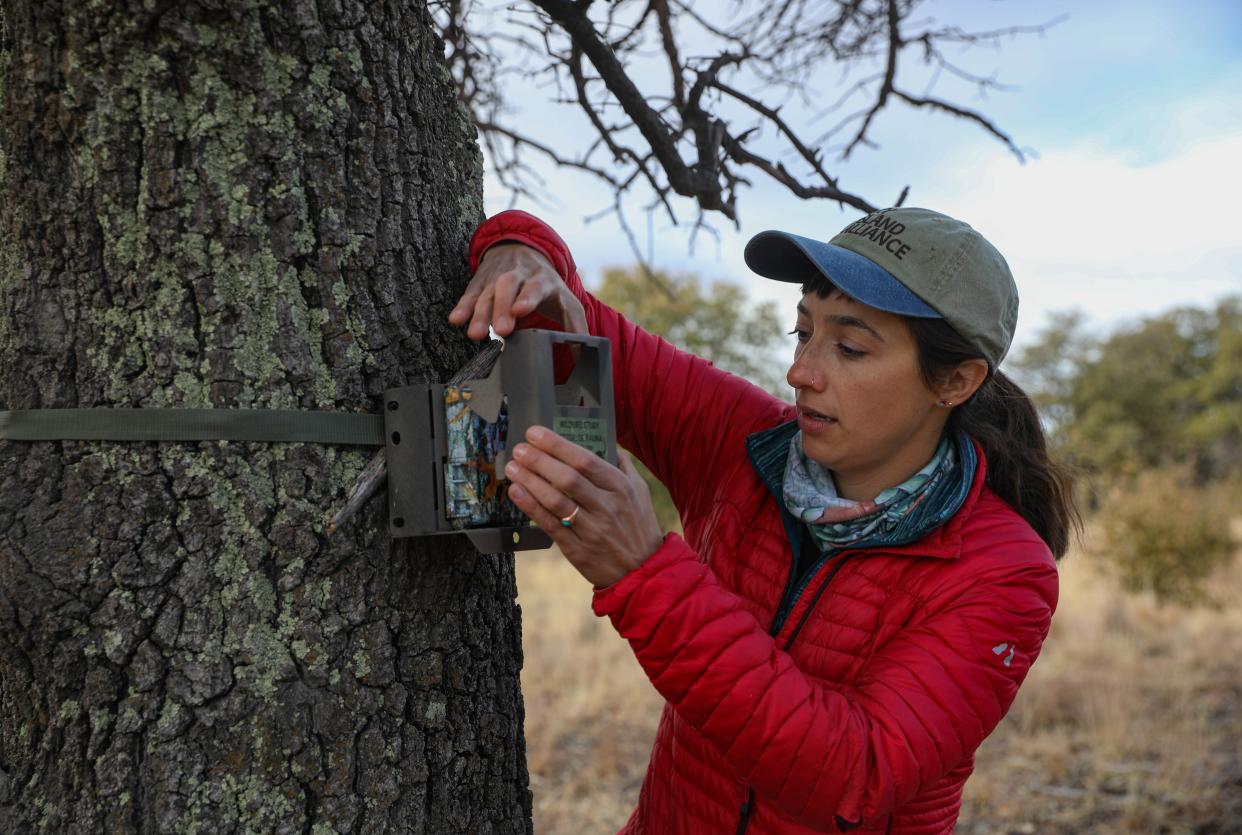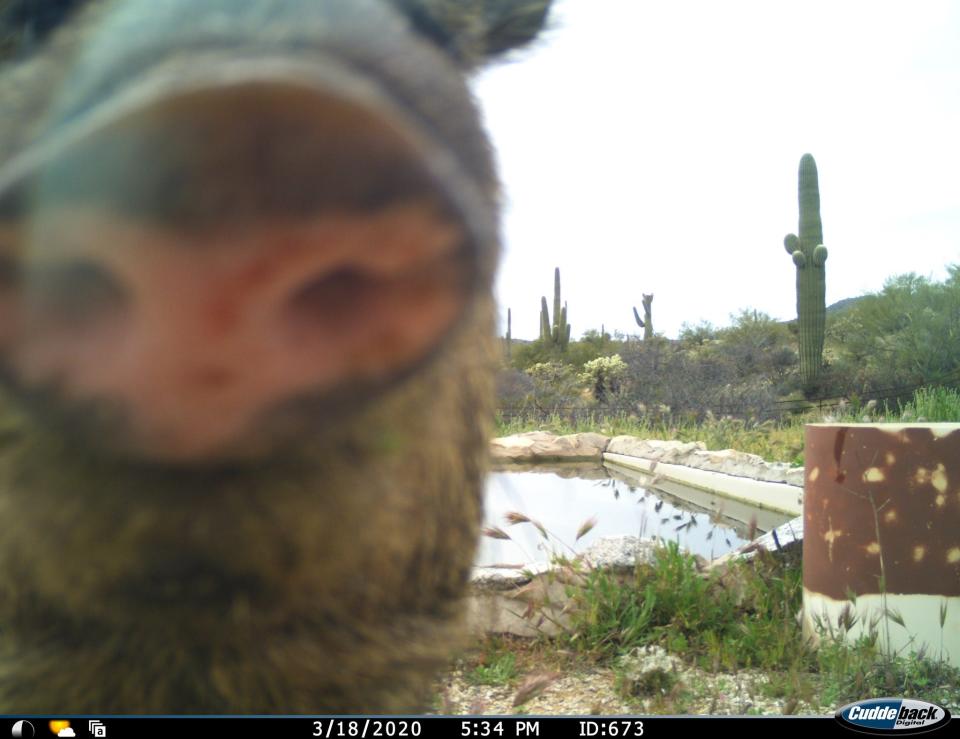Using trail cameras to hunt wildlife in Arizona is banned as of New Year's Day

Hunters in Arizona will no longer be allowed to use remote cameras to help track wildlife as of Saturday when a ban on their use takes effect.
Trail cameras often are mounted near watering holes or common wildlife feeding areas to take photos while nobody is around and allow hunters to determine which animals visit the area and learn their patterns and habits, making it easier to kill them.
The Arizona Game and Fish Commission voted unanimously at a June meeting to ban trail cameras for hunting, though they still can be used for research, general wildlife viewing and to protect property.
But hunters using the images of deer, elk or other wildlife to help them pursue, shoot, trap, snare, fish for or otherwise kill animals will be violating the law after Saturday.
"The Game and Fish Department will take a diligent, thoughtful and fair approach with regard to enforcing the new rule," the department said in a bulletin. "Department law enforcement officers are trained to handle and have extensive experience in complex law enforcement matters."
Arizona in 2018 prohibited the use of such cameras with a live feed, and now regulators are taking them out of the hunt entirely.

Kurt Davis, chairman of the Arizona Game and Fish Department Commission, said in June that the commission determined the cameras violate the Fair Chase Doctrine, which "pays respect to the traditions of hunting and angling by emphasizing the development of an individual’s skills rather than reliance on practices or technologies that overwhelm the quarry’s ability to elude detection or take."
He also said the cameras were harming the outdoor experience for people because they created more foot traffic near watering holes, with hunters coming and going to check their cameras for wildlife footage.
He also said there were conflicts with hunters out in the field checking cameras and interfering with people actually out hunting.
With cameras getting cheaper, conflicts were increasing, he said.
Davis also said at the time that the commission had concerns people could operate trail cameras as a business, sharing data with hunters and increasing pressure on wildlife.
"Change and what is allowed or not allowed in the field is a constant in the sport of hunting and the management of wildlife," he said.
While the ban may lead to less successful hunts for some people, Davis thinks that the ban upholds the "ethical approach to conservation so that we and future generations may all enjoy the wildlife on Arizona’s landscape and perpetuate a time-honored, traditional sport."
Trying to balance the use of technology while respecting wildlife is "the million-dollar responsibility of this commission," Davis said. "That balance is the essential part of being on the commission and setting the rules that govern how we pursue wildlife."
With reporting from Michael Donohue.
Reach reporter Ryan Randazzo at ryan.randazzo@arizonarepublic.com or 602-444-4331. Follow him on Twitter @UtilityReporter.
Subscribe to azcentral.com today.
This article originally appeared on Arizona Republic: Arizona trail camera ban goes into effect Jan. 1, promoting fair chase

